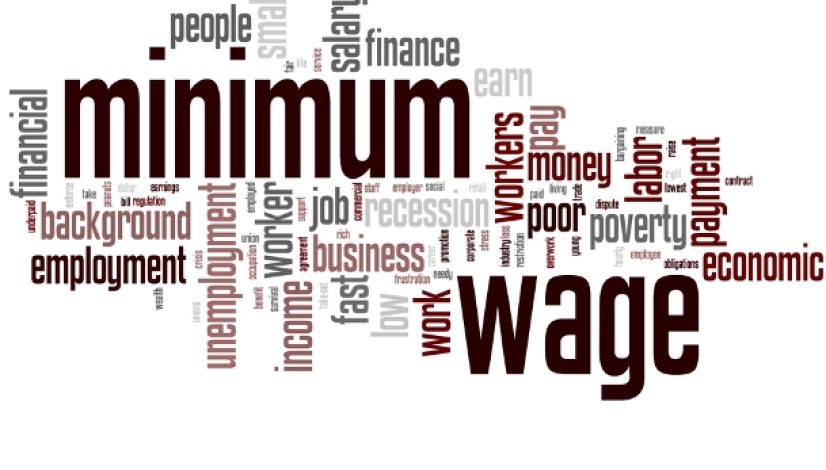Minimum Wage Review 2023 and other changes
The Fair Work Commission has announced its annual wage review decision for 2023. The decision will affect the minimum wages of millions of workers across Australia.
Here are some of the key points you need to know:
- The National Minimum Wage will increase from $21.38 per hour to $23.22 per hour. This is the largest increase in the history of the minimum wage system.
- The minimum pay rates in all modern awards will increase by 5.75%, in line with the government’s submission and the unions’ demand. This means that award-covered workers will receive an extra $0.97 to $1.23 per hour, depending on their classification and industry.
- The new minimum wage and award rates will take effect from the first full pay period commencing on or after 1 July 2023.
- The Fair Work Commission said that the wage increase was justified by the strong economic recovery from the COVID-19 pandemic, the high inflation rate, and the need to maintain a fair and relevant safety net for low-paid workers.
The wage increase will benefit about 2.67 million workers, or 21% of the workforce, who are paid at or near the minimum wage. It will also boost consumer spending and economic growth, as well as reduce income inequality and poverty.
If you are an employer or an employee affected by the wage review decision, you should check your pay rates and entitlements on the Fair Work Ombudsman website or contact them for advice. You should also update your payroll systems and contracts to reflect the new rates as soon as possible.
Superannuation Guarantee Rate Increase
The Superannuation Guarantee (SG) is the minimum amount of superannuation that employers must pay to their eligible employees. The SG rate is currently 10.5% of an employee’s ordinary time earnings, which means the earnings from their usual hours of work.
The SG rate is set to increase gradually over the next few years, reaching 12% by 1 July 2025. This means that employers will have to pay more superannuation to their employees, and employees will have more money saved for their retirement.
The SG rate increases are as follows:
- 1 July 2022: 10.5%
- 1 July 2023: 11%
- 1 July 2024: 11.5%
- 1 July 2025: 12%
The increases are part of the government’s plan to improve the retirement outcomes of Australians and reduce the reliance on the age pension.
The increases will affect both employers and employees in different ways. Employers will have to budget for the higher superannuation costs and ensure they comply with their obligations under the law. Employees will benefit from having more superannuation savings but may also face lower take-home pay or reduced wage growth.
Changes to Flexible Working Arrangements
Changes to Flexible Working Arrangements under the Fair Work Legislation Amendment (Secure Jobs, Better Pay) Act 2022 that will take effect on
6 June 2023
Flexible work arrangements can benefit both employees and employers by improving work-life balance, productivity, retention and morale. By understanding and complying with the changes to the law, you can make the most of these benefits and avoid potential disputes.
The changes will expand the category of employees who can request flexible work arrangements, introduce a specific process that employers must follow when they receive such requests, and give the Fair Work Commission (FWC) the power to resolve disputes about flexible work arrangements.
Who can request flexible work arrangements?
Currently, under the National Employment Standards (NES), only certain employees can request flexible work arrangements, such as changing their hours, patterns or location of work. These include employees who:
- are parents or carers of a child who is school-aged or younger;
- are carers of a person with a disability, medical condition, mental illness or who is frail and aged
- have a disability
- are 55 years or older
- are experiencing family or domestic violence or provide care or support to a member of their household or immediate family who is experiencing family or domestic violence.
The new changes will allow any employee to request flexible work arrangements if they, or a member of their household or immediate family, experience family or domestic violence. This means that employees who are not directly affected by family or domestic violence but need flexibility to support someone who is can also make a request.
How should employers respond to requests?
Currently, employers must respond to requests for flexible work arrangements in writing within 21 days and can only refuse on reasonable business grounds. The changes will require employers to:
- discuss the request with the employee and genuinely try to reach an agreement that balances the needs of both parties
- provide detailed reasons for refusing the request, including how the request would affect the employer’s business and why those effects are not reasonable
- consider alternative arrangements that could accommodate the employee’s request or part of it
- consult with the employee about any changes to their work arrangements that may affect their request.
If you are an employer who receives a request for flexible work arrangements from an employee, you should follow the process outlined on the Fair Work Ombudsman website and try to reach an agreement that works for both parties. You should also be aware of your obligations and risks if you refuse or fail to respond to a request.
For further information on these topics, please visit the Fair Work Ombudsman website here
Should you have any questions or would like to discuss this article further, the team at Gerard Wilkes & Associates are here to help. Do not hesitate to contact us at https://www.wilkes.com.au/contact-us/ or call our office 07 5532 1733.




